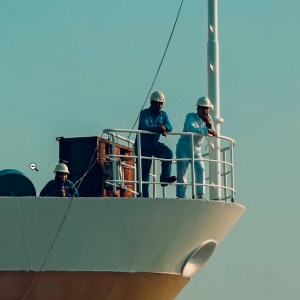Shipping industry adopted amendments related to Maritime Labour Convention to improve seafarers’ conditions. The Committee addressed a wide range of crew issues such as recruitment, repatriation, welfare and medical care. The amendments to the Code of the MLC, 2006 agreed during the ILO’s Special Tripartite Committee meeting and will ensure that:
-Seafarers are informed of their rights relating to the obligation of recruitment and placement services to compensate seafarers for monetary losses
-States further facilitate the prompt repatriation of abandoned seafarers
-Seafarers are provided with appropriate social connectivity by ship-owners and States provide internet access in their ports 
-Good quality drinking water is available free of charge for seafarers
-States provide medical care for seafarers in need of immediate assistance and facilitate the repatriation of the remains of seafarers who have died on board
-Seafarers have appropriately-sized personal protective equipment, in particular to suit the increasing number of women seafarers
-All deaths of seafarers are recorded and reported annually to the ILO and the relevant data is published
Additional, Member Authorities of the Tokyo and the Paris Memoranda of Understanding (MoU) on Port State Control launched a joint Concentrated Inspection Campaign (CIC) on STCW, commencing from 1 September 2022 and ending 30 November 2022. The purpose of the Concentrated Inspection Campaign on STCW is to confirm that:
-the number of seafarers serving on board and their certificates are in conformity with the relevant provisions of STCW Convention and Code and the applicable safe manning requirements as determined by the Flag State Administration
-all seafarers serving on board, who are required to be certificated in accordance with STCW Convention, hold an appropriate certificate or a valid dispensation, or provide documentary proof that an application for an endorsement has been submitted to the Flag State Administration
-the seafarers on board hold a valid medical certificate as required by STCW Convention
-the watch-keeping schedules and hours of rest indicate compliance with the requirements of STCW Convention and Code
More specific, a detailed checklist will be completed by inspectors when conducting focused inspections. The key subjects are the following:
-Do the number of the seafarers serving on board conform with the Minimum Safe Manning requirement specified for the vessel?
-Do the master and officers hold valid certificates of competency as required by the Minimum Safe Manning Document?
-Do the master, officers and radio operators hold valid endorsements attesting the recognition of certificates or documentary proof of application?
-Do seafarers hold relevant certificates of proficiency (COP) or documentary evidences?
-Do seafarers on board hold valid medical certificates?
-Do the records for hours of rest indicate compliance with the requirements? 
-Do the watch schedules comply with the provisions of STCW?
-Are seafarers newly joined the vessel familiar with their specific duties that are relevant to their routine or emergency duties?
-Can the seafarers on board the vessel communicate effectively with each other in the working language of the vessel?
-Do the voyage plans cover the whole route from berth to berth?
Source: www.ilo.org, www.parismou.org
Contact us to receive a professional advisory in your area of interest
